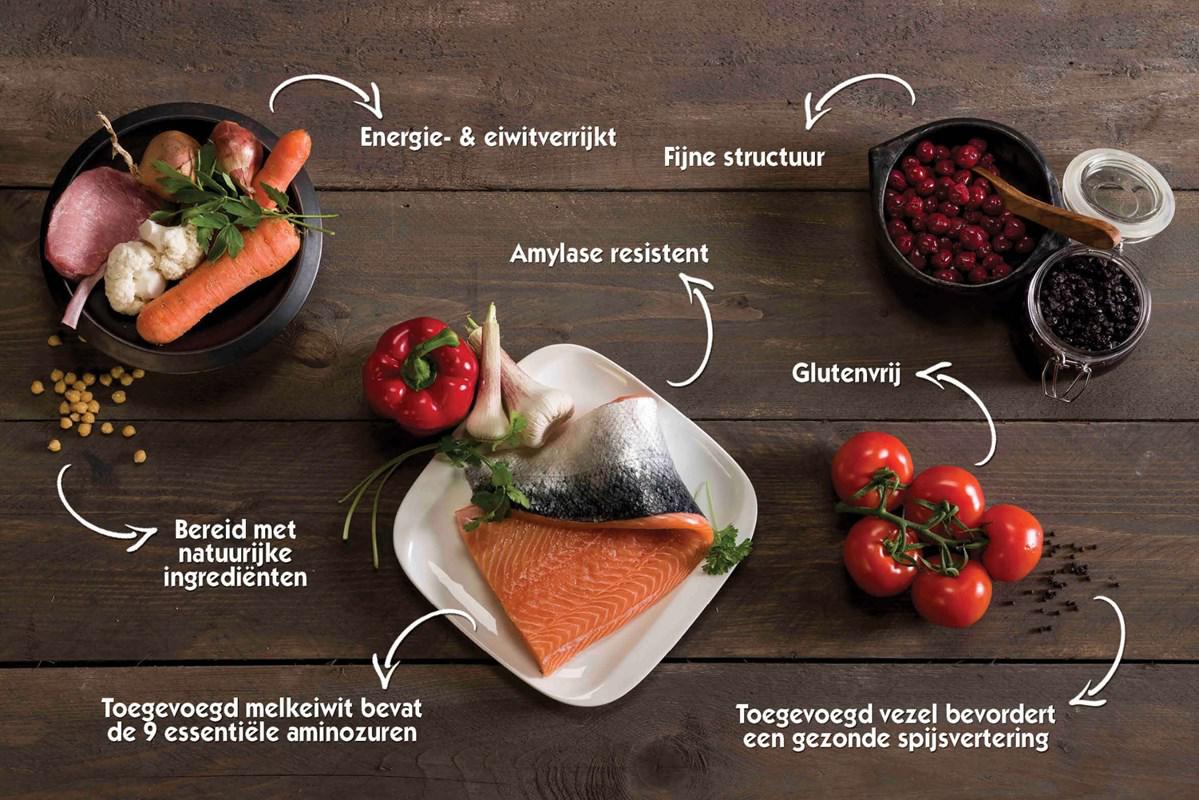Living on customized tasty and conscious food for people with the lung disease COPD
Eating and drinking, chewing and swallowing: we often do it without even thinking about it. But for people with the lung disease COPD, this can be a real challenge. In the PROOF project, the company Fijnproevers, Delta General Hospital, and Maastricht University are working on food products for COPD patients that taste good, look appetizing and are packed with proteins, fiber and minerals.
A swallowing problem - also known as a swallowing disorder or dysphagia - is a disorder that prevents safe and efficient chewing and swallowing of liquids and food. This causes two problems: difficulty in swallowing the food or choking on liquid or food. People who can no longer chew or swallow properly ultimately eat less, can experience unwanted weight loss and even become malnourished. Even though there are a great many people with a swallowing problem, there are still few solutions.
Based in Eersel, the company Fijnproevers specializes in developing food products for people with chewing and swallowing problems: from smoothies and soups to snacks and desserts. Developed by chefs, these products pay a lot of attention to taste, smell and nutritional value. In other words, no more medical nutrition in a bottle, developed in a laboratory, but real food based on natural ingredients, prepared by chefs.

COPD
Boudewijn Oude Elberink is responsible for business development at the company. When he heard about the PROOF project, he knew immediately that it was a perfect fit for what Fijnproevers was already working on. Within the scope of the PROOF project, Brightlands Campus Greenport Venlo is working with three Flemish and two Dutch partners to bundle expertise from healthcare professionals, nutrition companies and knowledge institutes to develop customized nutrition for people with chronic health issues. Fijnproevers is involved in the pilot that focuses on nutrition for people with the chronic lung disorder, COPD. Boudewijn: “We are already developing food for people with chewing and swallowing problems. In this pilot, our specific focus is on COPD patients to determine what they need.”
Also read
-
Inaugural lecture Jan Willem van Prooijen
What drives people to embrace radical conspiracy theories, sometimes with far-reaching consequences for society? During his inaugural lecture on Friday 27 June, Prof. Dr. Jan Willem van Prooijen (radicalisation, extremism, and conspiracy thinking) will address this urgent question.

-
Update 25 June
Last night a UM building at the Bouillonstraat was daubed with paint and slogans. A sad expression of vandalism. UM has filed a report.

-
A night in Tehran: rose water, saffron and pistachio
Niloofar Tahmasebi Birgani, assistant professor at the MERLN research institute, was born in southern Iran. It was only when she moved to the Netherlands in 2010 for her PhD research that she began cooking for herself. Instead of recipes, she uses intuition and memory to bring her mother’s and...
